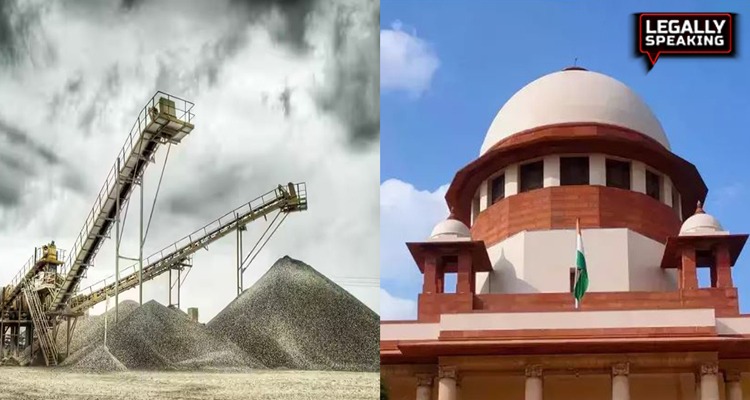
The Supreme Court has directed the Central Pollution Control Board (CPCB) to conduct scientific studies and gather data on the pollution caused by stone crushing units.
The court has asked the CPCB to determine whether these units require prior environmental clearance to operate. Justices Sanjiv Khanna and Dipankar Datta, constituting the bench, have also temporarily suspended a May 1, 2023, directive from the National Green Tribunal (NGT), eastern zone.
The NGT’s order stipulated that prospective stone crushing units in West Bengal must obtain prior environmental clearance from the State Level Environment Impact Assessment Authority (SEIAA).
The bench asked the CPCB to submit a report on the pollution caused by stone crushing units and provide its opinion on whether they should be included in the Schedule of the Environment Impact Assessment Notification, 2006, dated September 14, 2006. This schedule mandates prior environmental clearance for specific projects and activities.
On January 3, the bench issued the order, stating, “The CPCB will obtain necessary data and conduct scientific studies on the aforesaid aspect(s) and file a report before this court within a period of eight weeks from today.” In the event that environmental clearance is deemed necessary for stone crushing units, the CPCB will issue appropriate directions as required by law, regardless of the current order.
The bench drew attention to the environmental guidelines for stone crushing units issued by the CPCB in July 2023, which aim to reduce emissions and pollution caused by crushers. The court directed the CPCB to present the scientific data supporting these guidelines and confirm whether they concluded that environmental clearance is not required.
The Supreme Court’s decision stems from an appeal filed by the Ministry of Environment, Forest, and Climate Change against the NGT’s May 1, 2023, order. The NGT, eastern zone, had issued the directive based on a plea by Biplab Kumar Chowdhury. Chowdhury alleged that stone crushing units in West Bengal’s Alipurduar district were operating in the riverbed of the Raidhak-II river without necessary permissions, extracting large stones and boulders, crushing them, and selling the resulting material for commercial gain.
The petitioner claimed that, during inspections, none of the units could produce environmental clearance, despite having consent to establish the setup and applying for the renewal of consent to operate. The NGT had issued various directions, including the requirement for stone-crushing units to obtain environmental clearance from the SEIAA, West Bengal, for their operation in the state.




